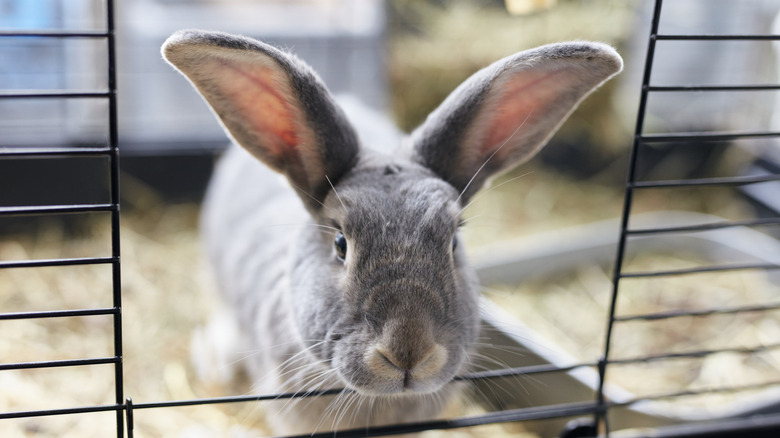Rabbit Stroke Symptoms
Symptoms of a stroke — or cerebrovascular accident — in rabbits can resemble less serious afflictions, but it's better to be safe than sorry when your pet's health is at stake. If your bunny exhibits any sort of odd neurological behavior, get him to the vet immediately. Prompt diagnosis and treatment can make all the difference. Unfortunately, death is sometimes the sole symptom of a stroke in rabbits.
Tip
Suspect stroke if your older rabbit suddenly develops a loss of motor function on one side of his body.
Head Tilt
It's scary to see your rabbit's head tilting, and the condition can result from stroke. Formally known as torticollis, head tilt isn't necessarily a death sentence. While middle-ear infection is a more common cause, even rabbits suffering head tilt from stroke can recover — to some degree — over time.
Other Stroke Symptoms
Don't panic if you notice your rabbit's muscles twitching or undergoing spasms occasionally or if his body sometimes jerks in his sleep. Those movements aren't indicative of stroke, unless they are prolonged and his neurological function is obviously impaired. Actual stroke symptoms, besides functional loss on one side, include:
- seizures or tremors
- facial weakness
- involuntary, side-to-side eye movements, known as nystagmus
- circling
- or hind leg paralysis.
Diagnosis and Treatment
Your vet will rule out other potential causes of your rabbit's symptoms. These include:
- trauma
- poisoning
- infection
- pneumonia
- cancer
- heart disease
- or gastrointestinal obstruction.
Blood tests and X-rays may reveal other causes, but the only definitive ways to diagnose stroke in a rabbit — while he is still alive — is via magnetic resonance imaging or computerized axial tomography. These diagnostic tools are better known as MRIs or CAT scans, respectively, but not every "exotic" veterinarian's office will have them.
Your vet may give your pet a corticosteroid injection initially to reduce pain and inflammation, along with blood thinners if she suspects a clot, but supportive care is the only real treatment. That might include expressing your rabbit's bladder manually several times daily and hand-feeding him. Your vet will give you her candid opinion of your rabbit's prognosis, and you can make decisions accordingly.
Warning
It's crucial to use a vet experienced in rabbit health. The small animal vet you might use for your dogs or cats may not have the expertise to deal with a very sick bunny. If that's the case, and you don't have a rabbit vet, ask your small animal vet or a local rabbit rescue organization for a recommendation.
